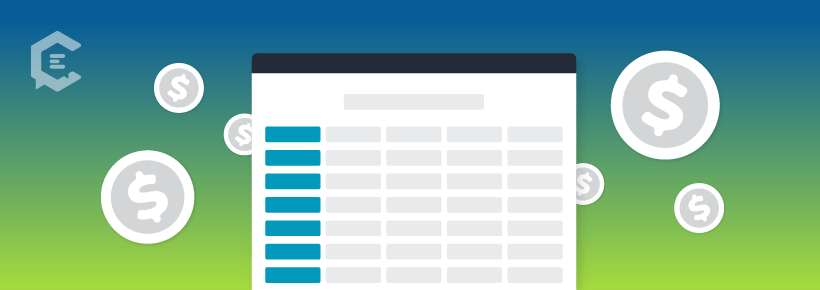When you sign up to be a freelancer — especially a full-time one — it’s like signing a safety waiver. Moving forward, you are solely responsible for your own income, your professional development, your retirement savings — and well, everything tied to your career.
Leadership development and career expert, Elizabeth Whittaker-Walker, says it best when she shares freelancing isn’t for the faint of heart. “It can mean sporadic compensation for hard work, a wild schedule, and a barrage of disconnected projects with intersecting deadlines,” she explains.
And while the busy seasons are hectic, stressful and fruitful, plenty of solo-preneurs prefer them to the slow periods, where doubt and panic settled in. When this happens, you can choose two routes: building your business with faith in your abilities and in the predictable ebb-and-flow, or with fear. If you choose the latter, you could start cutting corners, making mistakes and discount your abilities in an effort to bring in any cash flow.
This isn’t a sustainable or healthy way to grow your company, and it could cause unnecessary angst. So, cut it out!
Here, subtle signs you’re hustling out of panic — and what to do about it.
1. You have no financial plan.
Sure, when you are first developing your company, you may not have a blueprint for where you’ll be in a few months or a year. But the longer you develop a business, the more important it is to structure your income and map out your goals. After all, when you’re gainfully employed, a boss ensures you stay on track, so when it’s just you, you have to step up to the task.
Whittaker-Walker says to start with your current financial benchmarkers, like paying off student loans or a credit card bill, saving for a down payment, or something else:
Think through three strategies to reach the financial goal. Make sure one at least one is connected to your freelancing work, and begin working your plan.
This may look like a certain amount of money stowed away every month. When you have a slow period, you can pause the payment, or come up with ways to save more during the rush from another month. The point is to think about your income like you would if you weren’t a freelancer, and separate it accordingly.
2. You are always stressed.
If you ask most freelancers, part of the reason they branched out on their own was for the lifestyle. Being able to set your own hours, take vacations as you please and work in your PJs are major perks of working for yourself. And while, sure, there will be periods where urgent deliverables and many rounds of edits have you sweating bullets, more times than not, you shouldn’t feel as anxious as you did while employed.
That’s why industrial-organizational psychology practitioner and workplace expert Amy Cooper Hakim, Ph.D. recommends freelancers to under-promise and over-deliver:
If you have a weeklong deadline, there is no need to turn over the piece in 24 hours. But, if you submit a quality product the day before it is due, then you will still appear focused and driven without undue stress of working overtime to get your work done.
The point is, you shouldn’t put intense — and unnecessary — pressure on yourself because you’re afraid a client will change their mind. Rather, do what you say you’ll do, and allow yourself to trust your skills.
3. You took on a gig during an unhappy time.
“Panic can set in when a payment is delayed, a project falls through, or a colleague backs out of a collaboration. Fear can prompt doubt and doubt can breed unhappiness,” Whittaker-Walker warns.
So when an opportunity to develop a content strategy, take on social media marketing or some other gig presents itself in a down period, you probably said ‘yes’ before you thought about it. After all, when you’re short on funds, you’ll do anything right? Wrong! It’s better to take a step back, digest the responsibilities of the job, and then decide if it’ll make sense for you in the long-term.
As Whittaker-Walker advises:
Spend some time getting to the root of your feelings. If journaling helps you get there, journal. If therapy brings you solace, go to therapy. Before you take on another gig, be sure you’re clear on your rationale and that a temporary feeling isn’t the impetus behind your next big professional decision.
4. You compare your work to others.
Hakims says while it’s a great idea to learn from a mentor and to be inspired by the quality output of your peers, if you are always competing with and comparing yourself to others, you may be in trouble. Or rather, you could be taking on projects only to ‘keep up with the Joneses’ and not focusing on opportunities that compliment your skillset.
Hakims suggests:
Recognize your strengths and strive to accept gigs that showcase your talents. Don’t take on more work than you can accomplish effectively and with quality.





